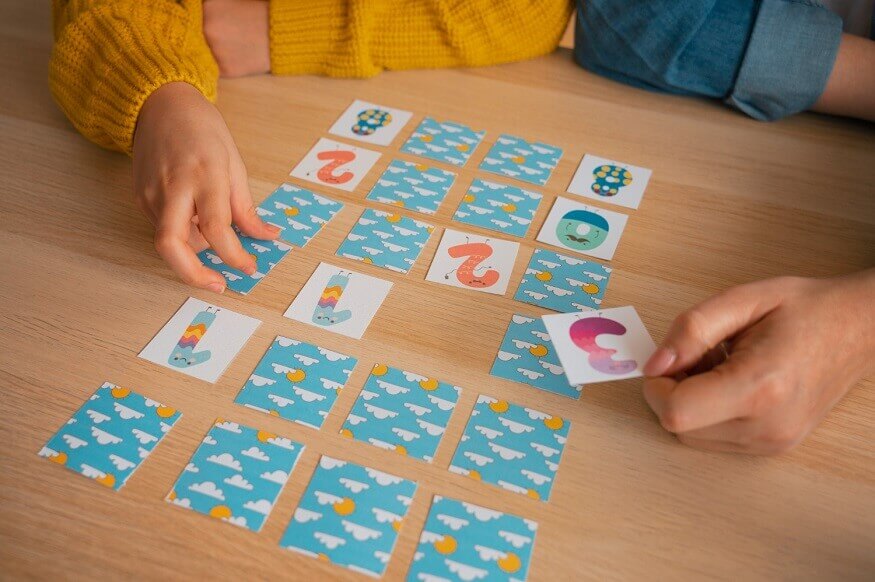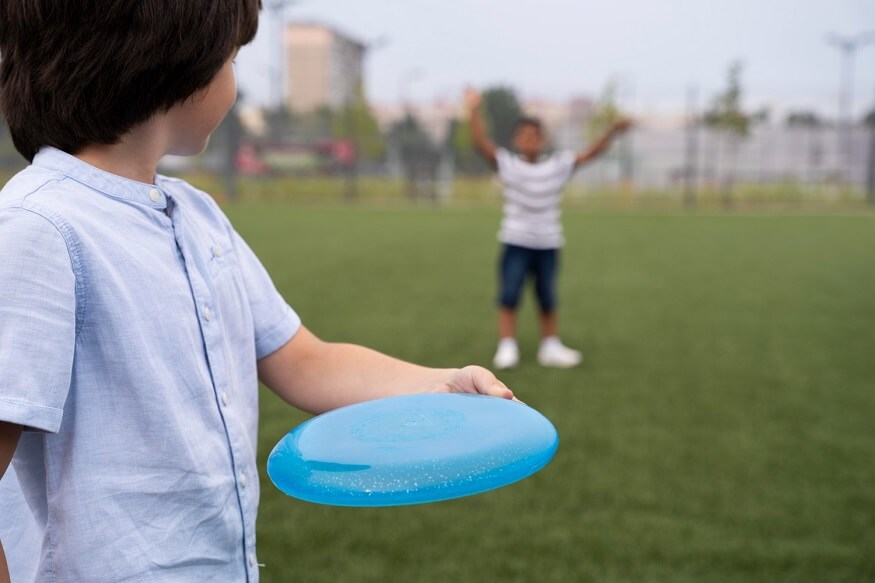Sequencing activities are an absolute delight for preschoolers and kindergarten kids, as they embark on fun-filled adventures while honing crucial cognitive skills. Engaging in sequencing games helps children grasp the concept of order, develop their memory, and enhance problem-solving abilities. In this blog, we will explore seven simple and captivating preschool sequencing activities that you can effortlessly incorporate into your little one’s daily routine. These activities not only stimulate their minds but also promote creativity and social interaction, laying a strong foundation for their future academic success. Let’s dive in and discover the magic of preschool sequencing games and kindergarten sequencing activities!
Also Read: 12 Amazing Physical and Mental Benefits of Solving A Rubik’s Cube
- Storytelling Sequence:
- Puzzles Galore:
- Follow the Leader:
- Sequencing with Snacks:
- Build a Lego Story:
- Pattern Play:
- Life Cycle Exploration:
Storytelling is a timeless art that captivates young minds and sparks their imagination. To turn it into a sequencing game, provide your child with a set of picture cards representing various events or scenes. These cards could depict exciting adventures like a day at the park, baking cookies, or planting a seed. Encourage your child to arrange the cards in the correct order to create a coherent and captivating story. As they string the events together, their language skills and sequencing abilities will bloom, enriching their storytelling prowess and enabling them to express themselves with greater clarity and creativity. This activity also fosters active listening and helps them understand the importance of context and plot development in narratives, setting the stage for more advanced literacy skills in the future.
Puzzles are an incredible way to instil the importance of sequencing in preschoolers and kindergarteners. Opt for puzzles with limited pieces and images showcasing everyday activities, such as getting dressed or brushing teeth. As they piece the puzzle together, children learn to logically organise the fragments to complete the picture. This activity fosters essential problem-solving skills and concentration, while the satisfaction of completing the puzzle boosts their self-confidence and instil a sense of accomplishment. Moreover, working together on a puzzle provides an excellent opportunity for social interaction and teamwork, promoting positive communication and cooperation among kids. This collaborative aspect of puzzles instils valuable life skills that extend beyond academic learning.
“Follow the Leader” is a delightful and interactive game that introduces children to the concept of sequential actions. Gather a group of kids and take turns being the leader. The leader performs a series of physical movements like clapping hands, hopping, or turning around. The other children enthusiastically mimic the leader’s actions in the exact order, honing their observation and listening skills. This lively game enhances their motor skills and teaches them the importance of following instructions in a fun and engaging manner, fostering teamwork and camaraderie. As they take turns being the leader, they also learn to be patient and empathetic towards others, developing essential social-emotional skills.
Who said learning can’t be delicious? Bring some scrumptious fun into the mix by using snacks to teach sequencing. Make a sandwich with peanut butter and jelly as an easy dish to try. Spreading peanut butter on one slice of bread, adding jelly, and then placing the second slice of bread on top should all be done with your child’s assistance. This mouthwatering activity not only teaches sequencing but also introduces basic kitchen safety and culinary skills, adding a pinch of real-world application to their learning journey and nurturing their sense of independence and responsibility. Additionally, as they enjoy their self-made snack, it encourages them to appreciate the rewards of their efforts and reinforces the concept of cause and effect.
Also Read: Fun Team Building Activities For Kids
Lego blocks are a treasure trove of creativity and learning opportunities. Encourage your child to build a simple Lego structure and then describe the building process step by step. For example, they might begin by laying a solid foundation, followed by stacking bricks to build walls and adding a roof. This hands-on activity promotes fine motor skills, spatial awareness, and sequencing abilities while fostering their imaginative thinking and encouraging them to explore the endless possibilities of creativity. Additionally, building Lego structures together as a family provides quality bonding time and allows parents to actively participate in their child’s learning and play.
Pattern recognition is a fundamental aspect of sequencing, and it can be playfully introduced through simple yet captivating games. Use everyday objects like colourful beads or buttons to create basic patterns, such as red-blue-red-blue. Challenge your child to identify the pattern and extend it further by adding more elements to the sequence. This delightful game hones their ability to identify and continue patterns, setting the stage for more complex problem-solving skills in the future, and laying a strong mathematical foundation that will benefit them in their academic journey. As they master patterns, they develop a greater appreciation for order and structure in their surroundings, and they begin to recognize patterns in the natural world.
Teach sequencing through the fascinating exploration of life cycles. Choose a specific life cycle to delve into, such as the butterfly or plant life cycle. Utilize pictures, diagrams, or even videos to showcase the various stages of development. Encourage your kid to recount the life cycle in their own terms by having conversations with them about the sequence of events from birth to adulthood. By engaging them in this intriguing activity, you may foster your children’s feelings of wonder, curiosity, and knowledge of the natural world. It also presents a superb chance for your kid to discover the beauties of nature. Discussions on environmental awareness and the need to preserve our planet during life cycle exploration can help kids develop a feeling of responsibility and care for the environment.
Also Read: Easy Balancing Activities for Preschoolers
Conclusion:
Incorporating preschool sequencing games and kindergarten sequencing activities into your child’s routine is a surefire way to make learning a joyful and engaging experience. These activities not only enhance their cognitive, motor, and language skills but also sow the seeds of curiosity and creativity that will flourish throughout their academic journey. So, let your little ones embark on a delightful sequencing adventure today, and witness their minds bloom with curiosity and ingenuity! Remember, the magic of sequencing games lies not just in their educational value but also in the precious moments of joy and bonding they create for you and your child. Happy sequencing, and may these activities be the stepping stones to a lifetime of learning and exploration, shaping them into confident, well-rounded individuals ready to embrace the world!
At Euroschool, we understand the importance of providing a holistic and engaging learning experience for kindergarten and preschool children. That’s why we have curated seven exciting sequencing activities that aim to develop essential cognitive, motor, and social skills while fostering a love for learning. From storytelling adventures and puzzle-solving challenges to building Lego structures and exploring life cycles, our preschool sequencing activities are designed to spark curiosity and creativity in young minds. These activities not only enhance language and problem-solving abilities but also promote teamwork and social interaction. We at Euroschool believe in developing each child’s potential, and our sequencing games are essential to creating a solid basis for their future academic success. Come along with us on this exciting exploration and discovery voyage!









